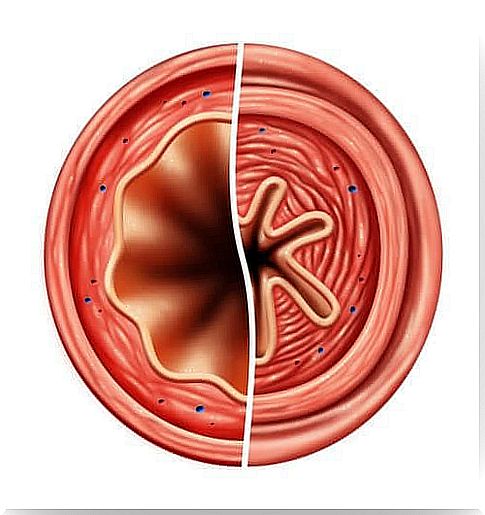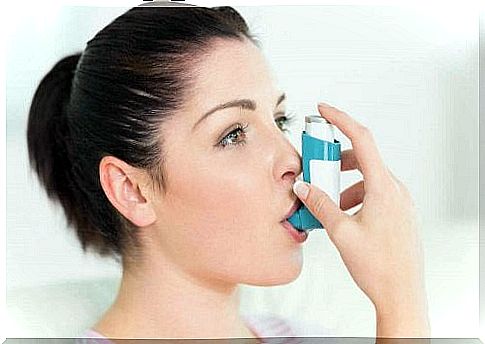How Does An Inhaler Work For Lung Problems?

Asthma and COPD are chronic respiratory diseases. This causes the bronchi to become inflamed and contract. As a result, it is more difficult to get air to the lungs when you inhale. It is then sometimes necessary to use an inhaler.
Meanwhile, swelling can occur as a result of an allergic reaction to certain stimuli. This is because the bronchi may be more sensitive or too active to environmental factors. This can happen because of, for example:
- the cold
- exercise
- tobacco smoke
- and so forth
The bronchi then contract and this prevents the patient from breathing normally.
Although we know what triggers asthma attacks, specialists still don’t know exactly what causes the disease. It is also partly genetic and is more common in patients with a positive family history.
Patients may also go through periods of no symptoms followed by seasons of lung problems. For example, some of the most common symptoms include:
- cough
- wheezing
- sounds while breathing
- difficulty breathing, even while resting
- mucus formation
- frequent sneezing
Once doctors diagnose this disease, the medical team will come up with the best treatment plan. There are two different therapies for treatment:
- Lifestyle changes. This is based on a set of simple guidelines to help prevent asthma attacks and key symptoms. For example, patients should avoid environments that make it difficult to breathe.
- Using an inhaler to relieve symptoms.
What is an inhaler and how does it work?

Depending on their characteristics and effects on each patient, you can use different types of inhalers. In any case, the medical team will tell you about their possible side effects. You will also be able to determine how effective an inhaler is and how long the inhaler works after you use it. We will discuss the most common inhalers below.
An anti-inflammatory inhaler
These inhalers work because they reduce possible inflammation of the mucous membrane in the bronchi. In general, these inhalers use corticosteroids such as:
- Fluticasone
- Budesonide
- beclomethasone
Other recommended products are sodium cromoglicate or nedocromil. Nowadays you can take doses by inhalation or orally. They keep the lungs stable and symptom-free.
Bronchodilators
Within this category there are two different types:
- Beta-2 agonists. Usually these are the most commonly used bronchodilators recommended by medical teams. They act on the muscles around the bronchi. This allows airways to relax quickly so that they can function properly. To do this, they block a chemical compound called acetylcholine.
- Methylxanthines. These are also responsible for relaxing and widening the bronchi. As a result, they improve blood flow in that area. That way the heart can work better and you can breathe easier.

Histamine Inhibiting Inhalers
This group of chemical compounds reduces sensitivity to allergens. That’s why they stop reactions to things like cold, tobacco smoke and much more. As a result, they can control asthma symptoms.
Most importantly, they help stop sneezing, itchy eyes, watery eyes, and other respiratory problems.
Immunotherapy using an inhaler
This is for patients who are highly allergic to certain factors that cause symptoms. One of the most common substances used for this is Omalizumab.
In general, doctors administer the allergen in very small amounts. Over time, the patient’s body becomes accustomed to the trigger, which helps reduce asthma attacks.
Leukotriene Regulators
Leukotriene regulators also act as anti-inflammatory drugs on the respiratory tract. This way you can manage possible symptoms.
Bronchial Thermoplastic
This is a new technique that specialists are now testing. It is a controlled application of heat in hyperactive areas to thin the smooth muscle in the airways, reducing its ability to contract.
In general, your doctor will help you determine which treatment plan is best for you if you have lung problems.









